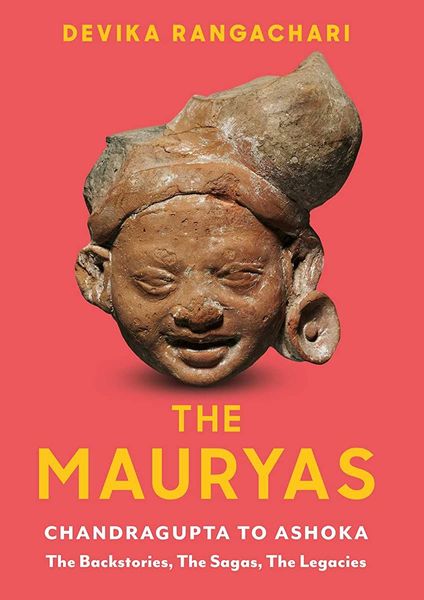
The Mauryas Chandragupta to Ashoka: The Backstories, The Sagas, The Legacies
From c. 324 BCE to c. 185 BCE, the Mauryas controlled almost the entire Indian subcontinent with efficiency and administrative finesse. Beginning with the origins of Magadha in the sixth century BCE, this definitive book on the Mauryas captures the drama, the colourful betrayals and the intrigues of the Mauryan dynasty in Magadha, starting with its enigmatic founder, Chandragupta Maurya, and his even more enigmatic mentor, Chanakya/ Kautilya, who helped him to get the throne. Chandragupta’s son and heir, Bindusara, is an extremely shadowy, elusive figure in the historical narrative of the Mauryas. Sandwiched between his well-known father and his even more well-known son, Ashoka, Bindusara has slipped through the cracks of known history. Yet the little bits of evidence that we glean about him from varied sources suggest a ruler of power and foresight. A man of eclectic and whimsical tastes, even, who ensured that his heir would inherit a vaster empire than he did. Ashoka, Bindusara’s son, was not only the most powerful Mauryan ruler but also one of the best-known monarchs in Indian history. There are several wildly imaginative tales that document his transition from Ashoka the Fierce to Ashoka the Contrite, consequent on the battle of Kalinga in c. 261 BCE where, horrified at the bloodshed, he underwent a radical personal and spiritual transformation and documented this fact all over his empire through inscriptions on pillars and rocks that have endured till today—a brilliant, pioneering method of communication. An incisive wit and humour makes Devika Rangachari’s The Mauryas sparkle even when it is disentangling grave accounts of significant battles or tedious details of city planning. Culling details from secular and religious literary traditions, Graeco-Roman accounts and archaeological evidence to elucidate this lesser-known period of our ancient past, The Mauryas concludes with an analysis of the enduring legacy of this remarkable dynasty and its strong resonances in our present.